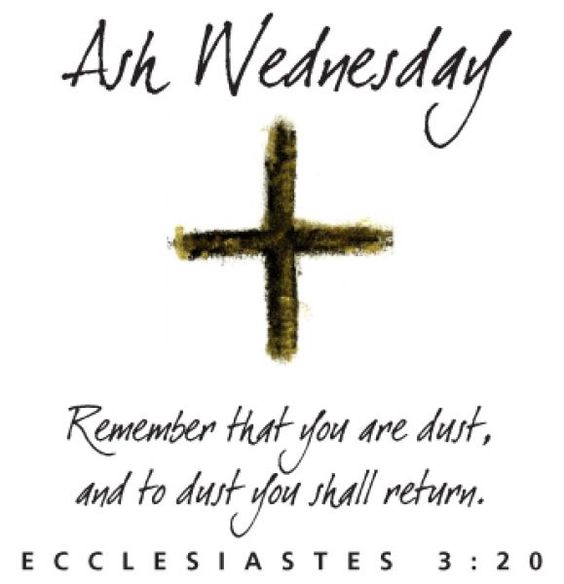Your cart is currently empty!
Ash Wednesday
First Day of Lent
Ash Wednesday begins a forty day period during which Christians remember their sinfulness, repent, as God’s forgiveness, and recognize that God’s forgiveness comes at an infinite price – the death of Christ on the cross on our behalf. It is not meant as a time of false humility or prideful self-sacrifice. It reminds us that our sin separates us from God, who “demonstrates His own love toward us, in that while we were still sinners, Christ died for us” (Rom. 5:8).

The day before Ash Wednesday is popularly known as Mardi Gras (or “Fat Tuesday”). It has developed into a time of partying and carousing, exemplified by the extravagant celebration in New Orleans, Brazil and Trinidad & Tobago. On Ash Wednesday, the historic churches mark the beginning of this period with a special service explaining the season, calling the people to repentance, signifying repentance with ashes, by which a cross is marked on the forehead of the penitent Christian.
Ashes (and “sackcloth,” or rough, plain clothing, usually of camel’s hair) traditionally represent mourning (2 Sam. 13:19; Gen. 37:34), repentance (Job 42:6; Matt. 11:21; Dan. 9:3; Joel 1:8, 13), and the judgment of God (Rev 6:12).
History
When King Ahasuerus ordered all Jews to be killed, Mordecai “tore his clothes and put on sackcloth and ashes, and… cried out with a loud and bitter cry.” The Jews throughout the land prayed “with great mourning… with fasting, weeping, and wailing; and may lay in sackcloth and ashes” (Esther 4:13).
This was for the dual purpose of mourning for their coming death and of demonstrating their repentance to God, pleading with Him to spare them from His judgment. When Jonah preached God’s coming judgment against Ninevah, the pagan king of Nineveh and his subjects understood that if a nation repents from its evil ways, God may withhold His judgment (Jer. 18:7-10), so they repented and prayed that God would spare them:
So the people of Ninevah believed God, proclaimed a fast, and put on sackcloth, from the greatest to the least of them. Then word came to the king of Nineveh; and he arose from his throne and laid aside his robe and covered himself with sackcloth and sat in ashes. He caused it to be proclaimed and published throughout Nineveh by the decree of the king and his nobles, saying, “Let neither man nor beast, herd nor flock, taste anything; do not let them eat, or drink water. But let man and beast be covered with sackcloth, and cry mightily to God; yes, let everyone turn from his evil way and from the violence that is in his hands. Who can tell if God will turn and relent, and turn away from His fierce anger, so that we may not perish!”
Then God saw their works, that they turned from their evil way; and God relented from the disaster that He had said He would bring upon them, and He did not do it (Jonah 3:5~10).
Reminder
Ash Wednesday should remind Christians that they are sinners in need of a saviour, and that their salvation comes at the sacrifice of God’s Son:
But Christ came as High Priest of the good things to come, with the greater and more perfect tabernacle not made with hands, that is, not of this creation, Not with the blood of goats and calves, but with His own blood He entered the Most Holy Place once for all, having obtained eternal redemption (Heb. 9:11-12).

